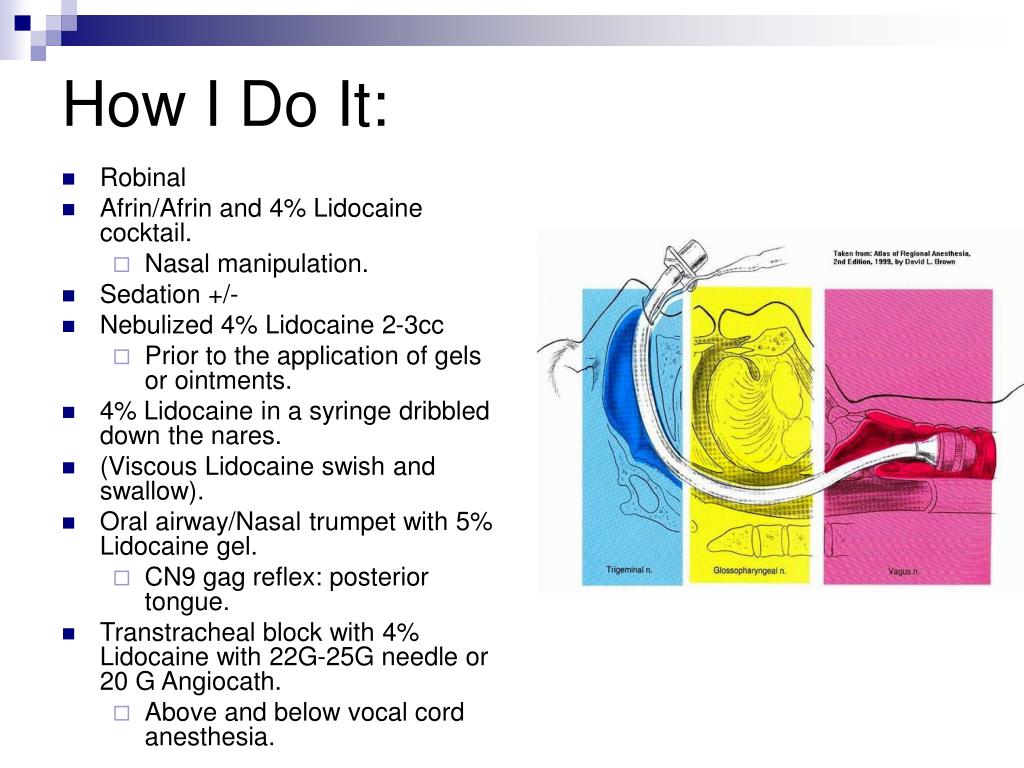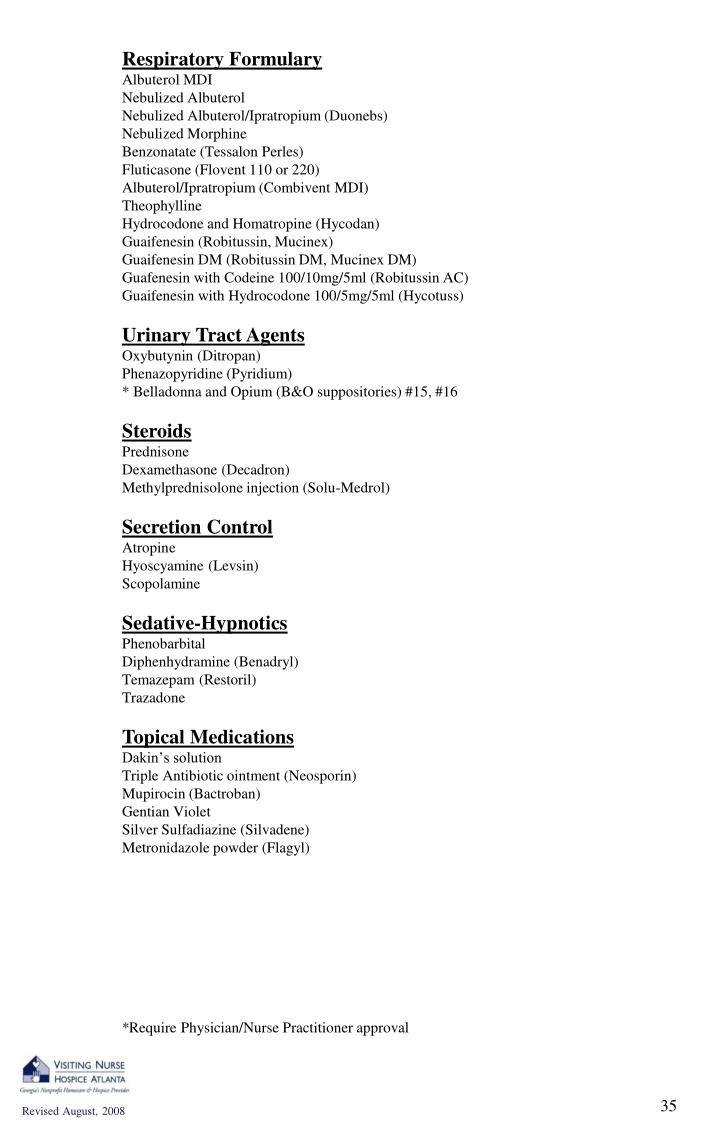
Antitumor antibiotics (dactinomycin, bleomycin, mitomycin).Antimetabolites (i.e., cytarabine, fluorouracil, methotrexate).Anthracyclines (e.g., doxorubicin, epirubicin).Alkylating agents (e.g., melphalan, cisplatin).Mucositis is typically painful, initially consisting of a mild or moderate burning discomfort but can be slow to heal and progress to significant pain, reducing a person’s ability to talk, drink, eat and/or swallow. Mucositis is mucosal ulceration affecting the oral, pharyngeal, laryngeal and/or the esophageal areas and caused most commonly by chemotherapy or radiation to the head and neck region. The physician wants to try a compound, doxepin mouth rinse, but is uncertain of the recommended dosing. Viscous lidocaine 2% topically has been considered but TM does not like the taste. He has tried Magic Mouthwash, but it makes him nauseous and exacerbates the local pain from the mouth sores. The hospice physician managing TM’s care reports that the radiation continues to improve symptoms of pain and difficulty breathing, swallowing and speaking however TM suffers with significant mucositis in his mouth and pharynx. In addition to systemic medications to manage pain, nausea, and constipation, he is prescribed inhalation therapies for COPD and palliative radiation to the head and neck.


TM is a 65-year-old male with advanced head and neck cancer with a history of COPD who elected hospice two weeks ago. We encourage you to download this month’s case study to share with your colleagues or continue reading below.

In this study, we will explore and review the different topical analgesia that can be used to treat mucositis. This month’s Palliative Pearls Case Study highlights a patient suffering from mucositis.


 0 kommentar(er)
0 kommentar(er)
